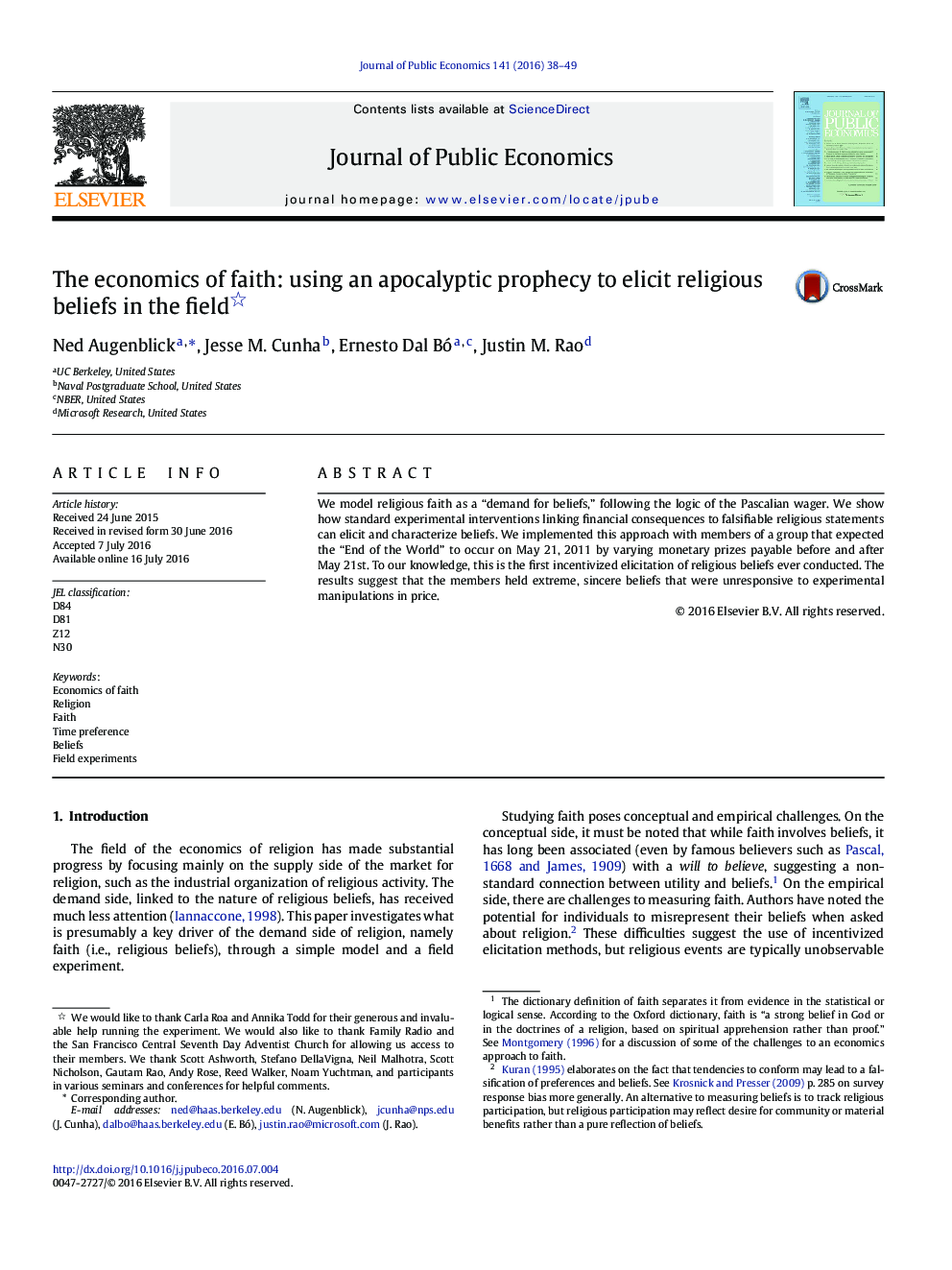| Article ID | Journal | Published Year | Pages | File Type |
|---|---|---|---|---|
| 968562 | Journal of Public Economics | 2016 | 12 Pages |
•We present a model of religious faith and show how standard experimental interventions can characterize beliefs.•We implement the approach with people who expected the Apocalypse on May 21, 2011 by varying prizes payable before and after May 21.•The results suggest the members held extreme, sincere beliefs that were unresponsive to experimental manipulations in price.
We model religious faith as a “demand for beliefs,” following the logic of the Pascalian wager. We show how standard experimental interventions linking financial consequences to falsifiable religious statements can elicit and characterize beliefs. We implemented this approach with members of a group that expected the “End of the World” to occur on May 21, 2011 by varying monetary prizes payable before and after May 21st. To our knowledge, this is the first incentivized elicitation of religious beliefs ever conducted. The results suggest that the members held extreme, sincere beliefs that were unresponsive to experimental manipulations in price.
